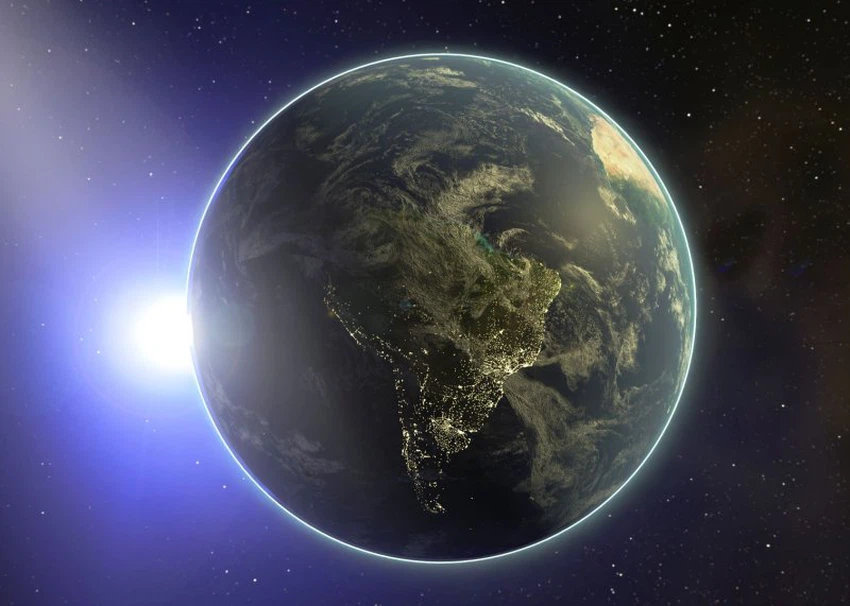On its International Day... How does the ozone layer affect climate change?
Arabia Weather - On the sixteenth of September every year, the world celebrates the International Day for the Preservation of the Ozone Layer under the slogan of the Montreal Protocol: “Repairing the Ozone Layer and Reducing Climate Change.” This day is not only an occasion to remember the importance of preserving the environment and our health, but it is also an opportunity for contemplation. In our progress in preserving this important layer that protects the Earth and those on it, on this occasion, a question comes to mind: What is the importance of the ozone layer? How does it affect climate change?
Ozone Layer
Ozone molecules are concentrated in an area within the stratosphere known as the ozone layer at an altitude of approximately 50 kilometers above the Earth’s surface. This layer plays a major role in protecting the planet from the sun’s harmful ultraviolet rays. The ozone layer absorbs most of these rays and prevents them from reaching the Earth’s surface, which protects Living organisms and the environment from damage.
The ozone layer faces threats from some harmful chemical compounds, such as chlorofluorocarbons (CFCs) and carbon halons. These compounds have been listed as harmful pollutants, and international action has been taken to limit their use.
Since the signing of the Montreal Convention in 1987, ozone conservation efforts have made significant progress as the use of harmful compounds has been reduced and environmentally friendly alternatives have been developed. This appears as a successful example of how international cooperation can be achieved to protect the environment

How does the ozone layer affect climate change?
The ozone layer forms an important part of the Earth's ecosystem, as it has a prominent role in protecting the planet, maintaining its balance, determining weather conditions and climate, and also has effects on health and the environment. The ozone layer affects climate change through its interaction with some environmental pollutants such as chlorofluorocarbon gases (CFCs), and these Pollutants contribute to the destruction of the ozone layer, which increases the effect of global warming and the resulting climate change.
Why do we need to preserve the ozone layer?
- UV protection
One of the main functions of the ozone layer is to protect us from harmful ultraviolet rays from the sun. These rays can cause skin diseases, an increase in cancer, and a weakened immune system.
- Its effect on surface temperatures
The ozone layer absorbs some ultraviolet radiation, heating part of the atmosphere in the stratosphere. This limited heat plays a role in directing atmospheric systems and winds at the Earth's surface, which can affect surface temperatures and air currents.
- Maintain rainfall patterns
The ozone layer affects air currents and rainfall patterns. If this layer is changed significantly, this may lead to changes in the distribution of rainfall in different regions. These changes could have major impacts on agriculture and food supplies.
- Impact on infrared emissions
The ozone layer absorbs infrared rays emanating from the Earth's surface. This absorbs heat and prevents temperatures from rising rapidly, which plays a role in preventing excessive climate changes.
Hence, the role of World Ozone Layer Day is to remind the world of the importance of preserving this layer and to encourage sustainable action to protect it. It indicates that environmental challenges can be faced with cooperation and determination, and that we can protect our planet for future generations.
Hence the importance of preserving the ozone layer in directing many factors of climate change and preserving our health and the environment. We must continue international efforts to preserve this valuable layer, which contributes to combating climate change.
Sources:
Arabia Weather App
Download the app to receive weather notifications and more..



